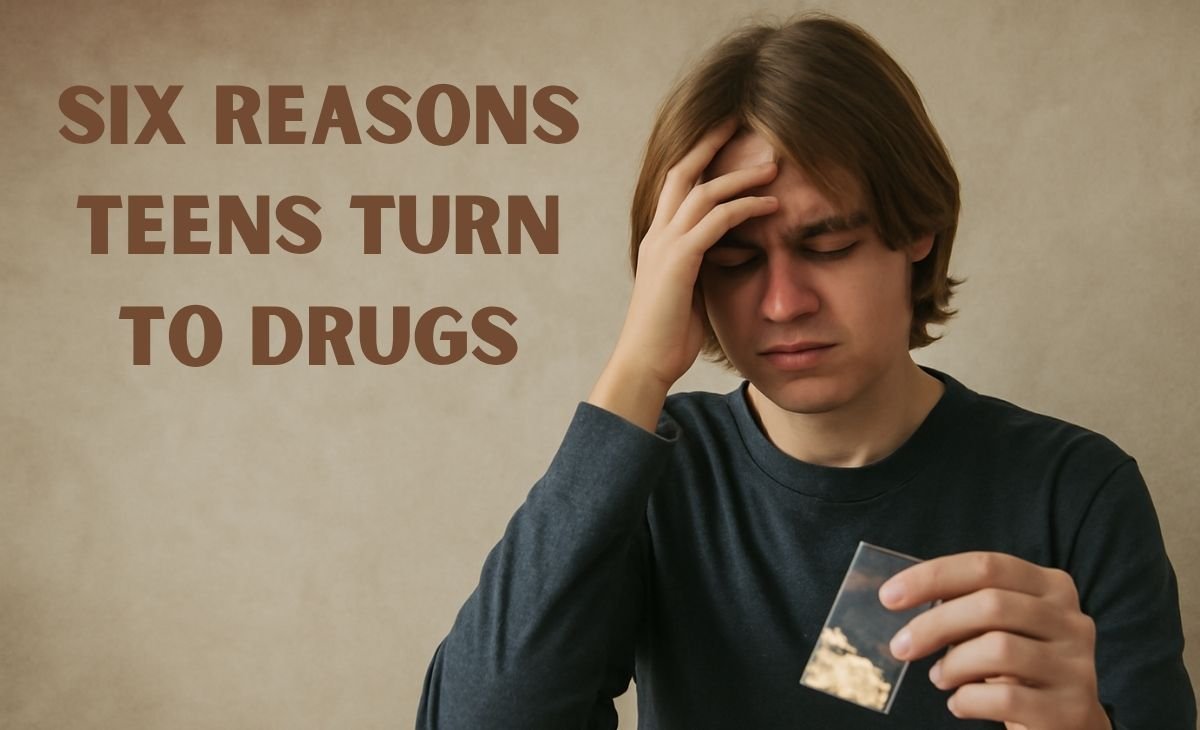Understanding the Motive Behind Teen Drug Use
Adolescence is a critical phase where teens often encounter choices about experimenting with drugs or alcohol. While some teens resist, others may give in. What drives this behavior? Could it be their confidence, ability to cope, or response to pressure?
Here are six common reasons why teens might turn to drugs or alcohol.
1. Appeal of Media and Marketing
The alcohol and drug industries often glamorize their products through advertising and media. These marketing tactics can greatly influence young minds. For example, studies show that alcohol is present in 77% of TV shows, and drug references are frequently found in music videos and movies. This constant exposure makes substance use seem normal, encouraging teens to view it as harmless.
2. Seeking Short-Term Escape
Teenage years can be overwhelming, filled with academic stress and personal challenges. Without healthy ways to cope, some teens use drugs or alcohol as a way to escape temporarily. Unfortunately, what starts as a short break from reality can quickly turn into a lasting problem.
3. Relief and Self-Medication
Many teens face issues like anxiety, depression, or ADHD. Some turn to drugs or alcohol to manage their emotions or symptoms, even if the relief they feel is only temporary. This approach to self-medicating increases the chances of addiction over time.
4. Need for Acceptance
Teens often crave acceptance and a sense of belonging. Peer pressure can make them feel compelled to try drugs or alcohol to fit in or seem more confident. Many believe substances can make them more social or likable, even though this perception is often misleading.
5. Acts of Rebellion
Some teens use drugs or alcohol as a way to push back against parents or societal norms. By breaking rules, they feel like they’re asserting their independence. However, this form of rebellion can develop into harmful habits.
6. Curiosity
Curiosity is a major factor for teens experimenting with substances. They might want to try a drink from the liquor cabinet or experiment with drugs, thinking “just once” won’t hurt. However, this mindset can easily lead to repeated use and addiction.
Conclusion
The teenage years are full of challenges and critical decisions that shape their future. It’s vital for parents, mentors, and educators to help teens build healthy coping skills and resilience. Open conversations, support, and education can empower teens to make better choices and avoid the risks of drugs and alcohol.
At Willing Ways, we offer resources and guidance to help families support their teens in making healthy decisions. If you’re concerned about substance use, our teenage addiction treatment programs are designed to provide targeted care and support for lasting recovery. Reach out to learn more about how we can help.

